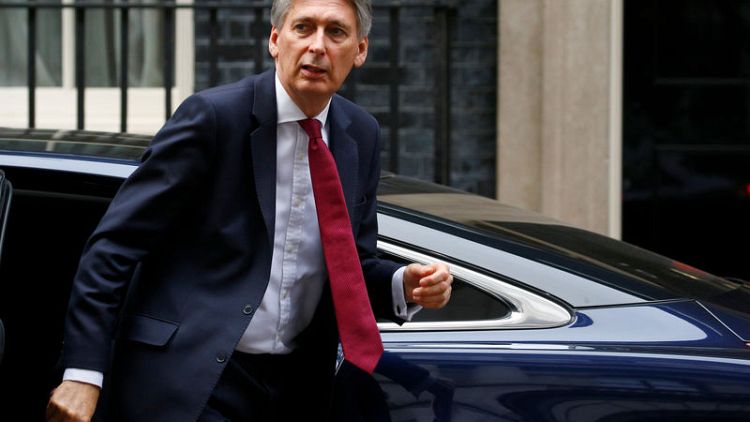LONDON, (Reuters) - Britain recorded a much larger budget deficit than expected in October, according to the first borrowing figures since finance minister Philip Hammond promised an end to austerity was within sight.
The deficit in October rose to 8.820 billion pounds from 7.235 billion pounds a year earlier, the Office for National Statistics (ONS) said, marking the biggest October shortfall for three years.
A Reuters poll of economists had pointed to a reading of 6.15 billion pounds.
While tax receipts continued to grow robustly, government spending increased compared with a year ago.
The ONS cited "notable" growth in expenditure on goods and services, as well as social benefits. Interest payments on government debt also increased.
Still, for the first seven months of the 2018/19 financial year, the deficit stood at 26.7 billion pounds, down almost 30 percent on the previous year and the lowest at this stage of the financial year in 13 years.
In his budget statement on Oct. 29, Hammond announced tax cuts for households and the easing of welfare curbs for poorer working families as well as a big increase in spending on the health services.
But he also warned that an end to the severe spending cuts endured by many government departments since 2010 would depend on Britain securing a Brexit deal with the European Union.
Prime Minister Theresa May last week agreed a draft withdrawal deal with Brussels. But it faces stiff resistance in her Conservative Party, meaning it could fail in parliament.
Hammond wants to steadily cut national debt as a share of GDP which he says is too high to easily support a big rise in public spending during a future recession.
Public debt, excluding public-owned banks and the Bank of England's stimulus programme, stood at 1.5985 trillion pounds in October, or 75.0 percent of gross domestic product.
That was down from 79.0 percent in the same month of 2017 but still double its level before the financial crisis.
(Reporting by Andy Bruce and Jonathan Cable)



